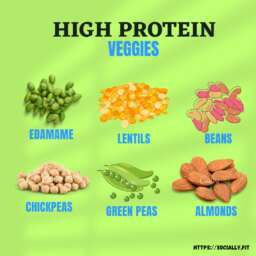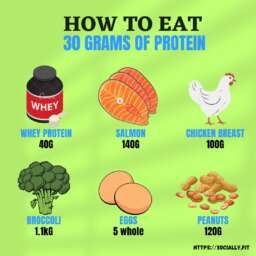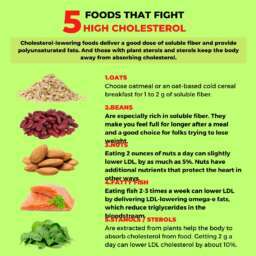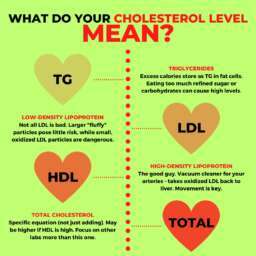Are Avocados Good for Weight Loss? Discover the Benefits and Facts.
Curious if avocados can aid in weight loss? Explore the nutritional benefits, impact on metabolism, and effective ways to incorporate avocados into your diet for better weight management. Find out how this creamy fruit can support your weight loss goals!
Introduction
In the world of nutrition and weight management, avocados have garnered significant attention. They are frequently lauded for their myriad health benefits, but a common question arises: Are avocados good for weight loss? This article aims to delve into the specifics of avocados, examining their nutritional profile, their effects on metabolism and satiety, and their role in weight management. By analyzing scientific studies and practical dietary advice, we will provide a comprehensive understanding of how avocados can fit into a weight loss strategy.
Nutritional Profile of Avocados

To determine if avocados are beneficial for weight loss, it’s essential to first understand their nutritional profile. Avocados are unique among fruits due to their high fat content, yet these fats are largely considered healthy. Here’s a breakdown of the primary nutrients in avocados:
- Healthy Fats: Avocados are rich in monounsaturated fats, particularly oleic acid. These fats are known to be heart-healthy and can help reduce levels of bad cholesterol (LDL) while increasing good cholesterol (HDL). Unlike saturated fats, which can contribute to weight gain and cardiovascular issues, monounsaturated fats may support weight management by improving fat metabolism and reducing inflammation.
- Fiber Content: One of the most noteworthy features of avocados is their fiber content. A typical avocado contains around 10 grams of fiber, which is essential for maintaining a healthy digestive system. Fiber helps to slow the digestion process, promoting feelings of fullness and potentially reducing overall calorie intake.
- Vitamins and Minerals: Avocados are packed with essential vitamins and minerals. They are an excellent source of Vitamin K, which plays a crucial role in blood clotting and bone health. Additionally, avocados provide Vitamin E, a powerful antioxidant, and Vitamin C, which supports immune function. They also contain potassium, which helps regulate blood pressure, and magnesium, which is important for muscle function and energy production.
Are Avocados Good for Weight Loss
How Avocados Affect Metabolism
Metabolism refers to the biochemical processes that occur within our bodies to maintain life, including the conversion of food into energy. Avocados can impact metabolism in several ways:
- Impact on Metabolic Rate: The metabolic rate is the rate at which the body burns calories. Studies suggest that healthy fats, such as those found in avocados, can increase the metabolic rate by promoting fat oxidation. Additionally, the high fiber content in avocados may contribute to a more stable metabolic rate by preventing spikes and dips in blood sugar levels.
- Effects on Insulin Sensitivity: Insulin sensitivity refers to how effectively the body responds to insulin, a hormone that regulates blood sugar levels. Improved insulin sensitivity is associated with a lower risk of obesity and type 2 diabetes. Research indicates that the monounsaturated fats in avocados may enhance insulin sensitivity, which could be beneficial for weight management and overall metabolic health.
Are Avocados Good for Weight Loss
Avocados and Satiety
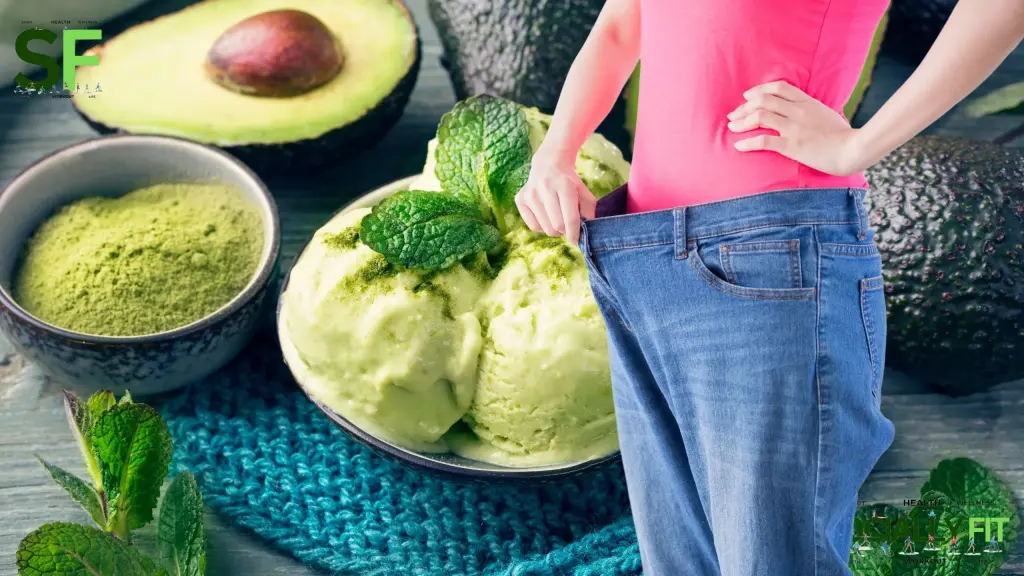
Satiety is the feeling of fullness and satisfaction after eating. This is a crucial factor in weight management, as it influences how much we eat and how often. Avocados can positively impact satiety in the following ways:
- Role in Appetite Control: The combination of healthy fats and fiber in avocados helps to promote feelings of fullness. The fats in avocados are digested slowly, which can help keep hunger at bay for longer periods. Additionally, the fiber content aids in digestion and prolongs the sense of satiety.
- Influence on Portion Sizes: Avocados may also influence portion sizes. By making you feel fuller, they can potentially lead to reduced overall food intake. This can be particularly beneficial for weight loss, as consuming fewer calories while still feeling satisfied can help create a caloric deficit, which is necessary for weight reduction.
Are Avocados Good for Weight Loss
Scientific Studies on Avocados and Weight Loss
To support the claims about avocados and weight loss, let’s explore some of the scientific studies conducted in this area:
- Clinical Trials and Results: Several clinical trials have investigated the effects of avocado consumption on weight loss and metabolic health. For instance, a study published in the Journal of the American Heart Association found that participants who incorporated avocados into their diet experienced a reduction in body fat and improved cholesterol levels. Another study published in Nutrition Journal indicated that avocados may help regulate appetite and reduce overall caloric intake.
- Long-term Impact: Long-term studies are essential for understanding the sustained effects of dietary changes. Research has shown that individuals who regularly consume avocados tend to maintain healthier body weight and improved metabolic markers over time. These findings suggest that avocados can be a valuable component of a long-term weight management strategy.
Are Avocados Good for Weight Loss
Incorporating Avocados into Your Diet

To maximize the benefits of avocados for weight loss, it’s important to incorporate them into your diet effectively. Here are some practical tips and ideas:
- Healthy Avocado Recipes: Incorporating avocados into your meals can be both delicious and nutritious. Try adding avocado slices to salads, sandwiches, or wraps. Avocado smoothies and homemade guacamole are also excellent ways to enjoy this fruit. Additionally, avocado can be used as a healthy substitute for butter or mayonnaise in various recipes.
- Balancing Avocados with Other Foods: While avocados are healthy, they are also calorie-dense. Therefore, it’s important to balance their consumption with other nutrient-dense foods. Combine avocados with lean proteins, whole grains, and plenty of vegetables to create well-rounded, calorie-conscious meals.
Are Avocados Good for Weight Loss
Common Misconceptions About Avocados
Despite their benefits, avocados are often misunderstood. Let’s address some common misconceptions:
- High Caloric Content: One common misconception is that avocados are too high in calories for weight loss. While it’s true that avocados are calorie-dense, the key is moderation. A typical serving size is around one-quarter to one-half of an avocado. When consumed in appropriate portions, avocados can be part of a balanced diet without hindering weight loss efforts.
- Fat vs. Weight Gain: Another misconception is that consuming fats leads to weight gain. However, the fats found in avocados are healthy fats that can support weight loss and overall health. It’s important to distinguish between healthy fats and unhealthy fats, such as those found in processed foods.
Are Avocados Good for Weight Loss
Tips for Eating Avocados for Weight Loss

To make the most of avocados in your weight loss journey, consider the following tips:
- Portion Control: Be mindful of portion sizes when eating avocados. While they are nutritious, consuming them in large amounts can lead to excess calorie intake. Stick to recommended serving sizes to maintain balance.
- Combining with Other Nutrient-Dense Foods: Pair avocados with other nutrient-dense foods to create a balanced meal. For example, combine avocado with leafy greens, lean proteins, and whole grains to ensure you’re getting a variety of nutrients while managing your calorie intake.
Are Avocados Good for Weight Loss
In-Depth Look at Avocado Varieties and Their Impact
When discussing avocados, it’s important to consider that there are different varieties, each with its own characteristics. These variations can influence how you incorporate them into your diet and their overall impact on your health.
- Hass Avocado: The most common variety, known for its creamy texture and rich flavor. It has a higher fat content compared to other varieties, which can be beneficial for satiety. Its high monounsaturated fat content makes it an excellent choice for a weight loss diet when consumed in moderation.
- Fuerte Avocado: This variety has a slightly lighter texture and less fat compared to Hass avocados. It’s a good option if you prefer a milder taste or are looking to reduce caloric intake while still enjoying the benefits of avocados.
- Bacon Avocado: Lower in fat and calories compared to Hass, the Bacon avocado is a suitable choice for those who are closely monitoring their caloric intake. Its slightly milder flavor can be a good alternative if you want to add variety to your diet.
- Pinkerton Avocado: Known for its larger seed and creamy texture, Pinkertons have a slightly higher fat content. They offer similar benefits to Hass avocados but may be less commonly found in grocery stores.
Are Avocados Good for Weight Loss
Balancing Avocados with Other Foods

While avocados are a healthy addition to your diet, balance is key to effective weight management. Here’s how to balance avocados with other foods:
- Pair with Lean Proteins: Combining avocados with lean proteins such as chicken, fish, or tofu can help create a balanced meal. Protein helps to build and repair tissues and contributes to a feeling of fullness, which can aid in weight management.
- Incorporate Whole Grains: Whole grains like brown rice, quinoa, and oats provide additional fiber and nutrients. Combining avocados with whole grains can enhance the overall nutritional profile of your meal and support satiety.
- Add Vegetables: Incorporating a variety of vegetables into your meals can increase fiber content and provide essential vitamins and minerals. Vegetables are low in calories and high in nutrients, making them an excellent complement to avocados.
- Watch Portion Sizes: Even though avocados are nutritious, they are also calorie-dense. Be mindful of portion sizes to avoid excess calorie consumption. A typical serving size is about one-quarter to one-half of an avocado.
Are Avocados Good for Weight Loss
Understanding the Role of Avocados in Different Diets
Avocados can fit into various dietary plans, and understanding their role in different diets can help you make informed choices:
- Low-Carb Diets: Avocados are an excellent choice for low-carb diets. They are low in carbohydrates and high in healthy fats, making them a suitable option for ketogenic or Atkins diets. The fiber content also helps manage blood sugar levels, which is beneficial for low-carb eating plans.
- Plant-Based Diets: For those following a plant-based diet, avocados provide a valuable source of healthy fats and nutrients. They can be used in a variety of plant-based dishes and offer essential fats that are otherwise less abundant in a vegan diet.
- Mediterranean Diet: Avocados fit well into the Mediterranean diet, which emphasizes healthy fats, whole grains, fruits, and vegetables. Their monounsaturated fats align with the diet’s focus on heart-healthy fats, and they can be incorporated into salads, spreads, and side dishes.
- Balanced Diets: In a balanced diet, avocados contribute healthy fats and fiber, which can support overall health and weight management. Including avocados as part of a varied and balanced diet ensures you receive a broad spectrum of nutrients.
Are Avocados Good for Weight Loss
Addressing Potential Concerns and Misconceptions
While avocados offer many benefits, it’s important to address potential concerns and misconceptions:
- Caloric Density: Some people worry that avocados are too calorie-dense for weight loss. While they are calorie-rich, the key is moderation. Incorporating avocados in controlled portions can provide health benefits without leading to excessive calorie intake.
- Digestive Issues: Avocados are high in fiber, which is generally beneficial for digestion. However, some individuals may experience digestive discomfort if they consume too much fiber. It’s important to increase fiber intake gradually and drink plenty of water.
- Allergies and Sensitivities: Though rare, some individuals may have allergies or sensitivities to avocados. If you experience any adverse reactions, such as itching or swelling, consult a healthcare professional.
Are Avocados Good for Weight Loss
Conclusion
Avocados are not only delicious but also offer several health benefits that can support weight loss and overall well-being. Their combination of healthy fats, fiber, and essential nutrients makes them a valuable addition to a balanced diet. By understanding their nutritional profile, incorporating them into various recipes, and balancing them with other foods, you can enjoy the benefits of avocados while working towards your weight loss goals.
Remember, the key to effective weight management is a holistic approach that includes a variety of nutrient-dense foods, regular physical activity, and mindful eating habits. Avocados can be a part of this approach, contributing to a satisfying and healthful diet.
Are Avocados Good for Weight Loss
FAQs
- How often should I eat avocados for weight loss?
- Incorporating avocados into your diet a few times a week can be beneficial. Aim for a serving size of one-quarter to one-half of an avocado per meal to maintain balance and avoid excess calories.
- Can I eat avocados on a low-fat diet?
- While avocados are high in fat, they are primarily composed of healthy monounsaturated fats. If you are following a low-fat diet, you can still include avocados in moderation to benefit from their healthy fats.
- Are there any specific times of day when it’s best to eat avocados?
- Avocados can be enjoyed at any time of day. They make a great addition to breakfast, lunch, or dinner and can also be used as a snack. Consuming them earlier in the day can help with satiety and energy levels throughout the day.
- How can I store avocados to keep them fresh?
- To keep avocados fresh, store them in the refrigerator if they are ripe. If you have a cut avocado, sprinkle the flesh with lemon or lime juice, cover it with plastic wrap, and store it in the refrigerator to prevent browning.
- Can avocados help with muscle recovery after exercise?
- Yes, avocados can support muscle recovery due to their healthy fats, fiber, and potassium content. The potassium helps replenish electrolytes lost during exercise, and the healthy fats can aid in muscle repair and overall recovery.
By integrating avocados thoughtfully into your diet, you can enjoy their numerous health benefits while effectively pursuing your weight loss objectives.








